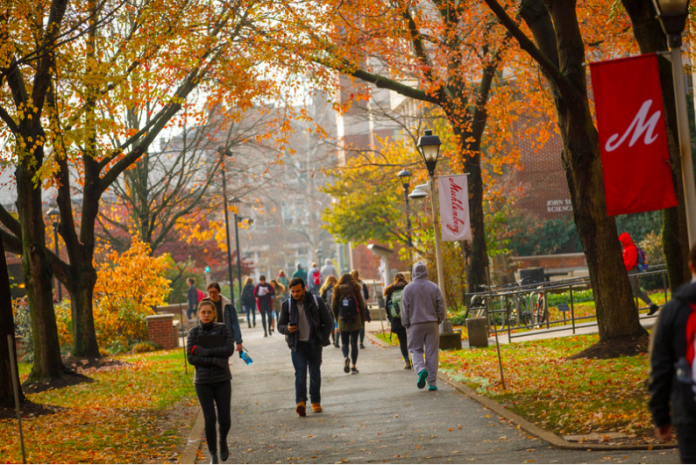Muhlenberg has joined the wider world’s conversation on sexual assault and gender violence by providing more resources and education to students, such as the Prevention Education Department, which was established on campus last year by Ann Marie Stevens.
This department exists to provide education, support and resources regarding sexual and gender violence, as well as drug and alcohol misuse. It is also intent on collaborating with other departments, creating safe spaces for students and student survivors across campus.
“Muhlenberg cares, and their fellow students care,” states Lauren Padko ‘20, a student at the forefront of this program. Padko has worked with Stevens to create a space for student involvement in these difficult conversations.
The Gender/Sexual Violence Peer Educator program was created to build off the work orthe Prevention Education Department. Stevens stressed that there was a great need on campus for students to be provided with accurate information regarding these difficult topics. It stemmed from a previous organization that provided a hotline for survivors or anyone on campus who needed to talk about anything related to sexual or gender violence. However, Stevens claims that the trend has shifted, and that having students be the educators in these cases is far more effective. When establishing this organization, Stevens and Padko discussed the importance of being proactive as well as providing support and resources.
The Gender/Sexual Violence Peer Educator program has been created to educate students on topics such as sexual and gender violence, harassment, dating violence and stalking. Not only does this program work through education, it also intends to provide resources for every student on campus, whether or not they have been exposed to any of the listed situations.
Another key aspect of this organization is making sure that students have resources and tools that go beyond Muhlenberg’s campus, preparing them for any potential instances either at home or post-grad.
Padko and Stevens want this program to show Muhlenberg students that they have access to resources if something were to go wrong or they were to have questions. There is a huge education component as well, and the selected peer educators will be trained in leading education programs for fraternity and sorority life, athletic teams, as well as other campus organizations. Through training sessions and open conversations, students will become empowered and able to discuss these topics, and eventually change the culture on sexual assault and gender violence on our campus and beyond.






















